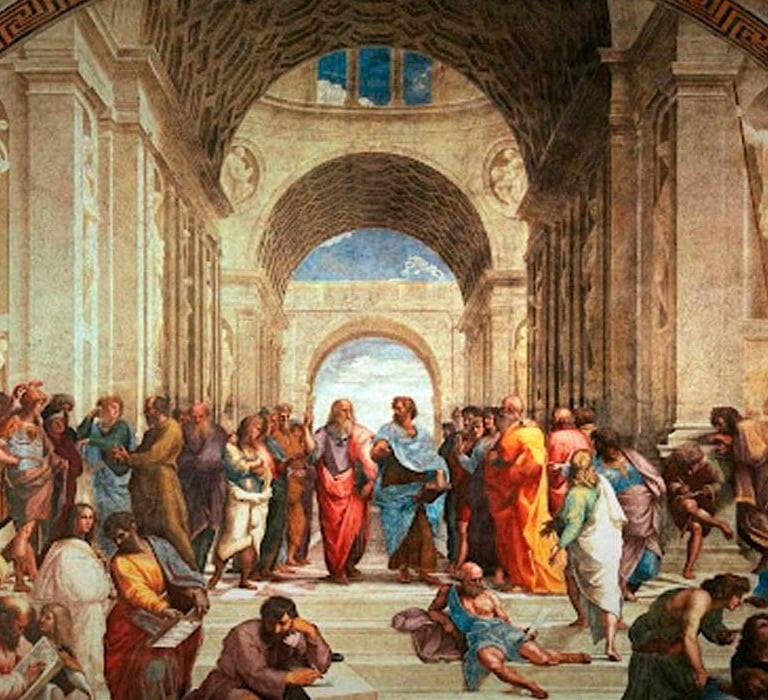Technology




Eternal Greece
The history of humanity is a narrative woven with the threads of progress and innovation. Since the dawn of civilization, we have witnessed a constant evolution driven by human ingenuity.
This civilization, cradle of knowledge and wisdom, not only laid the foundations of democracy, but also introduced the world with a fundamental innovation that would forever transform the way we communicate and share ideas.
The contributions of ancient Greece transcend time and space, leaving an indelible mark on the history of humanity. It was in this crucible of thought and culture where the pillars of logical reasoning and critical thinking were forged.
"All Western philosophy is nothing more than a series of footnotes to Plato."
Alfred North Whitehead
Alfred North Whitehead
However, among all these achievements, perhaps one of the most underestimated but equally transcendental was the invention of consonants in the writing system.
In a world where orality reigned and access to knowledge was restricted to a few privileged, the introduction of a writing system based on a code of only 24 elements, composed of vowels and consonants, represented a revolutionary milestone.
Imagine a world where the transmission of knowledge was limited to oral tradition, where ideas were confined to the minds of their creators and faded with the passage of time.
It allowed for the preservation and dissemination of knowledge, providing a powerful tool for sharing ideas and fostering intellectual debate.
Second Revolution: Printing Press
The invention of the printing press, several centuries later, marked a second revolution in communications.
Before this milestone, the production of books was costly and exclusive, reserved for a few privileged. However, with the advent of the printing press, the landscape changed drastically.


The printing press not only democratized access to knowledge, but it also played a crucial role in the formation of a collective consciousness and in mobilizing society towards political and social change.
Third Revolution: Internet and the democratization of knowledge
The history of humanity is marked by milestones that transformed the way we communicate and share information.


The Internet has made an unprecedented amount of information available to us. In a matter of seconds, we can access an infinite virtual library that covers all fields of knowledge.
Education for all
Online educational platforms, MOOC courses and the possibility of accessing scientific books and articles for free have revolutionized the way we learn.


This democratization of knowledge has opened the doors to education for millions of people who previously did not have the opportunity to learn.
Citizen empowerment and social participation
The Internet has empowered citizens like never before. Social networks and blogs allow people to express their opinions, share information and organize to defend their interests.


However, among the many chapters that make up this story, one of the most outstanding is the legacy left by ancient Greece.
Philosophy, mathematics, astronomy, art, and engineering flourished in this fertile intellectual terrain, shaping the course of human development.
This innovation democratized access to information and opened the doors of learning to broad sections of the population.
In this context, the emergence of written language was truly revolutionary.
Thus, the invention of consonants was not only a linguistic achievement, but also a catalyst for the flourishing of democracy and the exchange of ideas.
Now, books could be mass-produced, allowing new ideas and perspectives to reach a wider audience than ever before.
This democratization of knowledge played a crucial role in the advancement of democracy, especially during the French Revolution.
However, the third great revolution in communications is underway, and its name is the Internet.
Unlike previous technologies, the Internet is characterized by being a two-way mass communication channel.
This unique characteristic has allowed the development of a global culture where ideas are exchanged and debated instantly.
Mass-printed books helped to spread the ideals of liberty, equality, and fraternity, fanning the flames of popular revolt and empowering the masses with the knowledge they needed to fight for their rights and freedoms.


